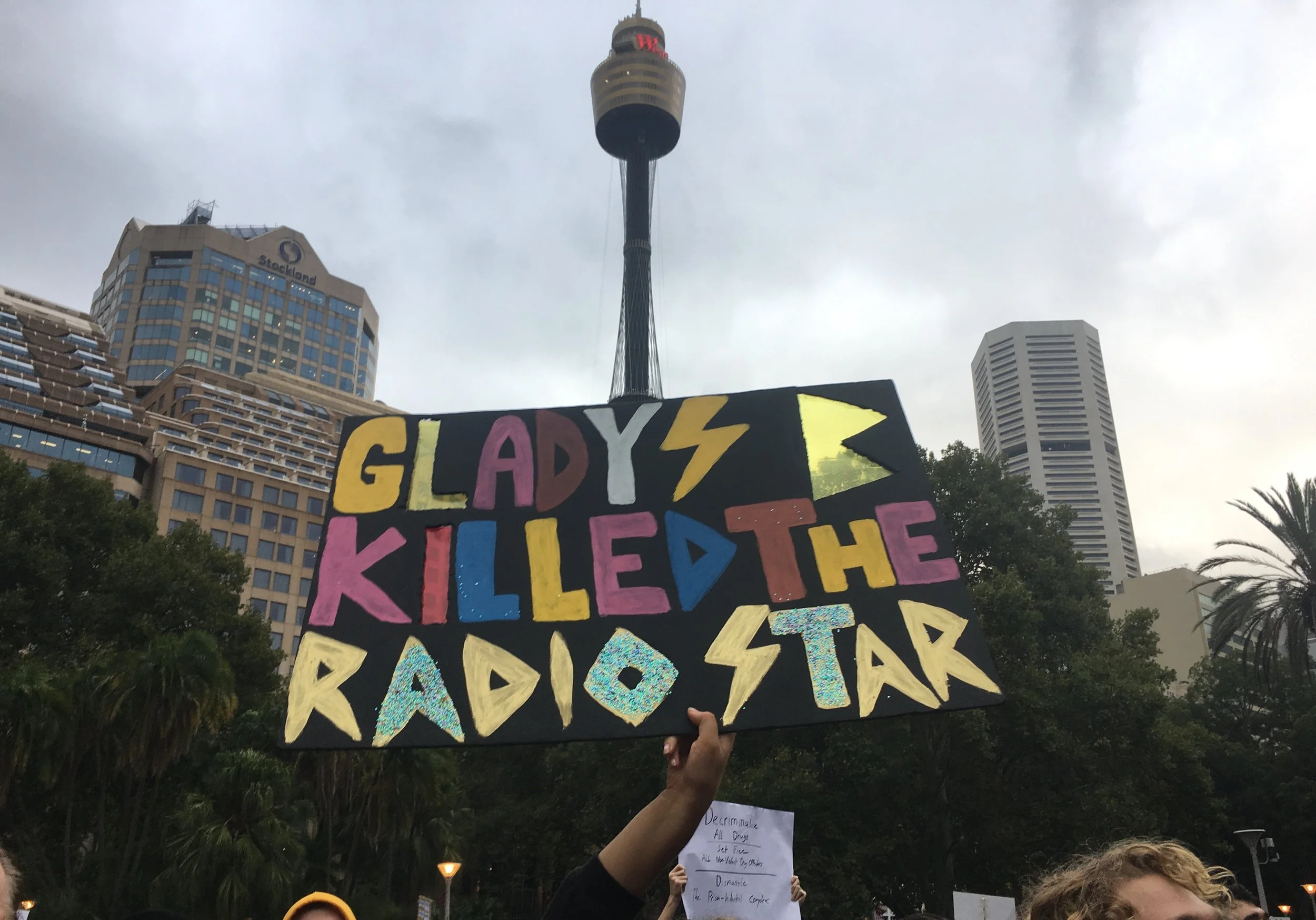Don’t kill live music rally - It’s a bigger problem than you think
Last night over 20,000 Sydneysiders turned up in the rain to protest new NSW live music regulations.
Local artists such as Ocean Alley and The Rubens performed at the rally, and festival organisers Michael Chugg and Adelle Robinson delivered speeches demonstrating how the new scheme will have a ripple effect on everyone.
The government’s crackdown on festivals in recent months comes after five suspected drug overdose deaths at NSW music festivals, from mid-September to mid-January. Since then, festivals like Mountain Sounds and Psyfari had to cancel due to large, last-minute financial demands from the government.
Robinson, who as co-director of festival agency Fuzzy has produced festivals such as Park Life, Field Day and Listen Out, spoke of her experiences.
“When planning an event, safety is always at the forefront of my mind. In the past three years, Fuzzy, with the Red Cross, have trained over 7000 staff in drug and alcohol harm minimisation practices. Festivals care deeply about safety.”
“What the government is trying to do is not about safety, it’s about trying to control an industry with the liquor act,” she said.
Hours before the rally took place, the government announced that “low-risk” festivals would obtain a free licence under the coalition’s new scheme. But the Australian Festival Association has criticised the proposal, stressing how in the dark festival organisers are, with March 1 only a week away.
“Despite statements to the media these changes won't impact ‘low risk’ festivals, the Government has failed to provide clarity and certainty around its risk categories. It's a fact that well run festivals with excellent safety records are already being affected by these new guidelines.”
The new licencing scheme will not only affect promoters, performers and audiences, according to those who spoke at the rally, it will also affect tourism, accommodation, transport companies, restaurants, shops and other local businesses. The rally organisers were quick to point out that NSW is currently the largest market for music festivals, with over six million attendees per year, contributing over $325 million to the NSW economy.
Furthermore, the new scheme will have cultural implications that, Electronic Music Conference’s executive producer, Jane Slingo, outlined.
“These celebrations are integral to the social fabric in our society today, they offer the chance for many like-minded people to come together in one place and celebrate their shared love of music. New friendships and relationships are born at festivals, festivals build community.”
Member of The Presets, Julian Hamilton, spoke of how festivals had an ongoing cultural impact.
“I am proof and the band that came before me are proof, and the bands out there that are killing it today will prove that music festivals’ cultural impact can last decades. And what I’m realising now is how close we are to losing all that if the NSW government continues to get their way,” he said.
Rally organisers encouraged attendees to sign their Don’t Kill Live Music petition which will be formally submitted to the NSW government and at time of writing has over 119,647 signatures.





